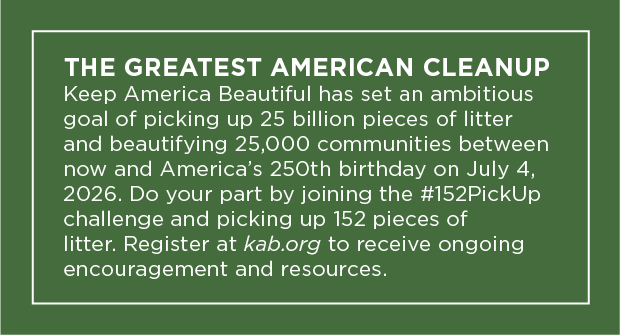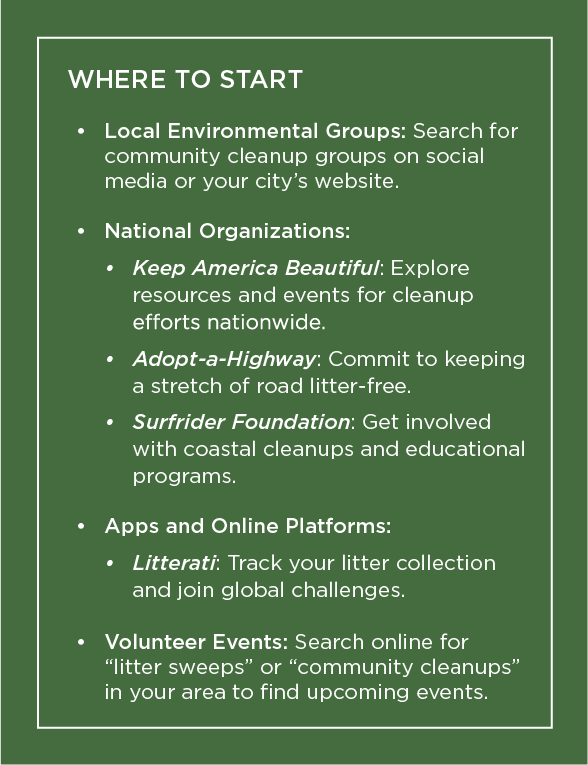Want to Leave a Legacy? It Could Be Simpler Than It Seems.
David Sedaris, who has authored more than a dozen books and hundreds of essays, has a generous following. According to his website, there are more than 10 million copies of his books in print, and they’ve been translated into 25 languages. He frequently fills large auditoriums across America with audiences eager to hear him read.
Yet Sedaris says he typically spends more time picking up trash than writing—nearly eight hours a day on average, often covering 20–25 miles on foot.
Over time, Sedaris has turned this hobby into a personal mission. In fact, he’s become so well known for his efforts that his local council named a garbage truck after him. It’s called Pig Pen Sedaris and has a cartoon pig painted on its side.
“I do it because I want to live in a nicer environment,” Sedaris told the West Sussex County Times. “I’m angry at the people who throw these things out their car windows, but I’m just as angry at the people who walk by it every day. I say pick it up yourself. Do it enough and you might one day get a garbage truck named after you. It’s an amazing feeling.”
Sedaris’s obsession with garbage might seem bizarre to some, but his commitment to cleaning up his community also demonstrates how seemingly insignificant actions can become a legacy.
The Litter Problem
Littering is a global issue, with millions of tons of trash accumulating in urban, suburban, and natural areas every year. According to the nonprofit Keep America Beautiful, the U.S. alone spends almost $11.5 billion annually on litter cleanup, and there are currently more than 50 billion pieces of litter on the ground. That’s 152 pieces for every American.

Cigarette butts, bottles, food wrappers, and other debris harm wildlife, pollute waterways, and reduce the aesthetic appeal of communities. Plastic waste, in particular, breaks down into microplastics, which can find their way into the food chain, posing health risks to plants, animals, and humans.
However, studies show that individual actions, like Sedaris’s, can have a compounding effect. For example, the presence of litter in an area can encourage further littering, a phenomenon known as the broken windows theory. Conversely, a clean, litter-free environment promotes a sense of communal pride and discourages further trash from accumulating. It’s proof that when even one person decides to act, they can inspire a ripple effect.
Tips for Picking Up Litter on Your Own

The benefits aren’t just communal; they’re personal, too. Many people find that picking up litter provides a simple form of exercise and a sense of accomplishment. There’s something deeply satisfying about seeing a messy area transformed through your efforts.
Moreover, taking action—no matter how small—can provide a mental health boost, giving you a sense of agency and control in the face of overwhelming environmental issues.
Picking up litter doesn’t require a lot of equipment or planning, but there are a few tips to make it easier, safer, and more enjoyable. Start by taking a small bag or bucket and gloves on your daily walk. You might also consider buying a litter grabber: a long, pole-shaped tool with a claw on the end that helps you reach things without bending over as often.
Remember, you don’t need to clear an entire beach or forest to make an impact. Simply cleaning up your street or a nearby park can be rewarding. If you make it a habit, you might find that you look forward to the process. As Sedaris says, “You do it because it needs doing, and you like the feeling of making a small difference.”
Finding Like-Minded People
While picking up litter alone is impactful, joining a community effort can amplify the results. These not only cover more ground but also inspire others to participate. Group cleanups can also be a great way to meet people who share your commitment to keeping public spaces litter-free.
Nonprofit environmental organizations like Surfrider Foundation and Keep America Beautiful often host local events, which can range from beach sweeps to greenway cleanups. Many cities and states also organize community days, where residents gather to remove litter from streets, waterways, and public spaces. Adopt-a-Street and Adopt-a-Highway programs are another way to help and are available in most cities and suburbs.
Every Little Bit Counts
At a time when environmental challenges can feel daunting, picking up litter is a simple, tangible way to make a difference. Every piece of trash removed is one less item polluting the environment, harming wildlife, or degrading the beauty of natural spaces.
If you want to give it a try, start small. Collect litter on your daily walk or join a community event. “You don’t need to be a hero,” says Sedaris. “Just someone who wants to live in a better world.” By taking action, you’re not just picking up trash. You’re also inspiring others to do the same and proving that small efforts can indeed lead to big change.
By Roxanne Bellamy
Roxanne Bellamy is editor in chief of VESTED magazine. She has a Bachelor of Arts and Master of Philosophy in English and has written for many industries, including beer, textiles, and finance. Her work has appeared in Fast Company, Inc., Forbes, and more. Her retirement dream is to be a National Geographic Explorer.